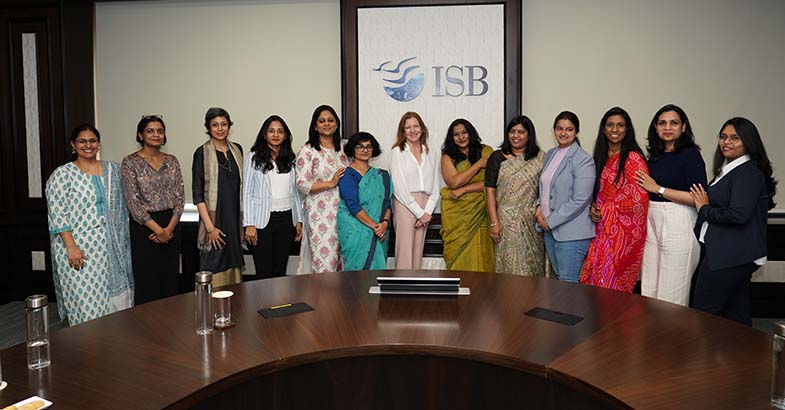
I recently had the privilege of participating in a thought-provoking session during the ‘Meet with a LeadHer’ series, where I engaged in a stimulating dialogue with Jennifer Larson, U.S. Consul General in Hyderabad. Our conversation delved into crucial topics surrounding women in leadership, and I am thrilled to share some key takeaways from our enriching discussion.
Empathy in Leadership:
One of the fundamental aspects we explored was the role of empathy in effective leadership. We underscored the importance of fostering a supportive work environment where empathy is not just a desirable trait but a cornerstone of leadership. By cultivating empathy, leaders can better understand and address the needs of their team members, leading to enhanced collaboration, morale, and productivity.
Flexible Policies:
We also delved into the implementation of flexible policies tailored to accommodate the unique needs and situations of female employees. Recognising that women often juggle multiple responsibilities, including caregiving and household duties, flexible policies can play a pivotal role in enabling women to thrive in their careers while maintaining a healthy work-life balance. These policies not only benefit women but also contribute to a more inclusive and equitable workplace culture.
Gender Data Metrics:
In our conversation on gender data metrics, we celebrated the progress made in increasing women’s representation in the workforce and leadership roles. However, we also acknowledged the gap in retaining women during pivotal life transitions such as marriage or childbirth. We emphasised expanding gender data metrics to track the reasons behind women’s exits and re-entries. By analysing this data, organisations can develop targeted strategies to support women’s career continuity, such as flexible work arrangements and parental leave policies. Leveraging gender data metrics for informed policies can create more inclusive workplaces where women thrive at every career stage.
Challenges Faced by Women:
Addressing the challenges faced by women during pivotal life transitions, we acknowledged the barriers women encounter when re-entering the workforce post-marriage or after childbirth. It was emphasised that inclusive policies are essential to supporting women at various stages of their careers and life journeys. Creating an environment that fosters diversity and removes systemic barriers is imperative for unlocking the full potential of women in the workforce.
Parental Leave Policies:
Furthermore, we discussed the pivotal role of parental leave policies, particularly for men, in promoting a balanced approach to parenting responsibilities. By encouraging men to take an active role in caregiving through robust parental leave policies, we can challenge traditional gender norms and create a more equitable division of household and childcare responsibilities.
Call to Action:
As our dialogue concluded, there was a unanimous call to action to continue these discussions beyond Women’s Week. It was emphasised that driving positive change in our respective workplaces requires ongoing commitment and concerted efforts from all stakeholders. By championing inclusivity, empathy, and flexibility, we can create environments where women can thrive and contribute meaningfully to organisational success.
In conclusion, I extend my heartfelt gratitude to the organisers for facilitating such a meaningful and insightful session. Let us seize this momentum to propel the advancement of women in leadership and strive towards building more inclusive and equitable workplaces for all. Together, we can effectuate positive change and empower women to reach their full potential.
Organised by the offices of External Relations and Alumni Engagement, ‘Meet with a LeadHer’ is a series of interactive lunch/coffee meets where a woman leader shares perspectives on their journey and achievements with the ISB community.

